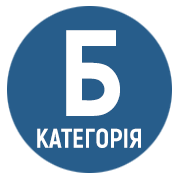THE NOVEL “DON’T LET ME GO” BY KAZUO ISHIGURO AS A DIAGNOSIS OF THE CURRENT SITUATION IN EDUCATION
DOI:
https://doi.org/10.24919/2522-4700.48.8Keywords:
Novel “Never Let Me Go” by Kazuo Ishiguro, education, anthropology, art.Abstract
Summary. The purpose of the work – by means of philosophical analytics of literary works to consider the dominant tendencies of the modern education system. Methodology. The article uses the method of cultural and anthropological reading of fiction when the text reveals significant characteristics of the current situation. The methodological and theoretical basis of such reading is the understanding of the phenomenon of art Theodor Adorno: direct expression tends to ideology and therefore hides the truth, art does not claim the truth of the literal image but makes it visible and noticeable what cannot be said clearly and unambiguously. Scientific novelty. Since man as a creature of culture does not have purely natural organs of perception and these organs are created in the process of the cultural and historical process. Roman Kadzuo Ishiguro is taken as a specific organ of human perception, which allows to see clearly in such a context, it is diagnosed with a situation in modern education. The artistic images of the novel work as a concept, grasping the subject under consideration, not in the famous empirical form, but bringing it to the marginal dimension. This allows the novel to be attributed to the genre of pedagogical anthropology. Conclusions. If you move away from the metaphorical images of the novel and move to the disciplinary language of philosophy, then it is that pragmatically oriented education eliminates everything “unnecessary” – poetry, drawing, music, leaving the functional cultivation of human resources. This sets the problem of the loss of utilitarian-oriented education, which enforces human life in the available installations here and now, cutting it into the means of achieving utilitarian and social purposes and making a person a puppet of society.
References
Адорно Т. Теорія естетики. Київ : Основи, 2002. 518 с.
Арендт Х. Криза виховання й освіти. Між минулим і майбутнім. Київ : ДУХ І ЛІТЕРА, 2002. С. 181–204.
Вітгенштайн Л. Tractatus Logiko-Philosophicus. Філософські дослідження. Київ : Основи, 1995. С. 22–86.
Возняк В. Значення класичної діалектики для педагогіки. Людинознавчі студії : збірник наукових праць Дрогобицького державного педагогічного університету імені Івана Франка. Серія «Філософія». 2021. № 42. С. 87–103. doi: https://doi.org/ 10.24919/2522-4700.42.6.
Ішіґуро К. Не відпускай мене. Львів : Видавництво Старого Лева, 2016. 376 с. URL: http://flibusta.site/b/621309/read (дата звернення: 07.03.2024).
Ліпін М.В. Освіта в модифікаціях сучасного світу. Київ : Київ. нац. торг.-екон. ун-т, 2018. 340 с.
Aldridge D. Education’s Love Triangle. Journal of Philosophy of Education. 2019. Volume 53, Issue 3. Special Issue: Love and Desire in Education. Р. 531–546. doi: https://doi.org/10.1111/1467-9752.12373.
Bakhurst D. Teaching and Learning: Epistemic, Metaphysical and Ethical Dimensions – Introduction. Journal of Philosophy of Education. 2020. Vol. 54. No. 2. Р. 255–267. doi: https://doi.org/10.1111/1467-9752.12418.
Jenkins M. In A Dystopian Britain, Teens Grope Toward A Future. September 14, 2010. URL: https://www.npr.org/2010/09/14/129838461/in-adystopian-britain-teens-grope-toward-a-future (дата звернення: 03.03.2024).
Kern A. Human Life, Rationality and Education. Journal of Philosophy of Education. 2020. Vol. 54. No. 2. Р. 268–289. doi: https://doi.
org/10.1111/1467-9752.12412.
Mertel K.C. M. Heidegger, Technology and Education. Journal of Philosophy of Education. 2020. № 54 (2). Р. 467–486. doi: https://doi.org/10.1111/1467-9752.12419
Press release. NobelPrize.org. Nobel Prize Outreach AB 2024. Wed. 6 Mar 2024. URL: https://www.nobelprize.org/prizes/literature/2017/pressrelease/ (дата звернення: 03.03.2024).
Pritchard D. Educating for Intellectual Humility and Conviction. Journal of Philosophy of Education. 2020. № 54 (2). Р. 398–409. doi: https://doi.org/10.1111/1467-9752.12422.
Rödl S. Teaching, Freedom and the Human Individual. Journal of Philosophy of Education. 2020. № 54 (2). Р. 290–304. doi: https://doi.org/10.1111/1467-9752.12415
Timmermann M., Korsgaard M., Aldinger M. The Educator’s Diary: Arendt and Kierkegaard on Progressivism and the Educational Relation. Educational Theory. Volume 68, Issue 4–5. August/October. 2018. P. 381–583. doi: https://doi.org/10.1111/edth.12325.
Vlieghe J., Zamojski P. Out of Love for Some‐Thing: An Ontological Exploration of the Roots of Teaching with Arendt, Badiou and Scheler. Journal of Philosophy of Education. 2019. Volume 53, Issue 3. Special Issue: Love and Desire in Education. Р. 518–530. doi: https://doi.org/10.1111/1467-9752.12375.
Voznyak V.S., Lipin N.V. Education like breach between past and future. Anthropological Measurements of Philosophical Research, 2020, No. 17. Р. 98–109. doi: https://doi.org/10.15802/ampr.v0i17.206722.


